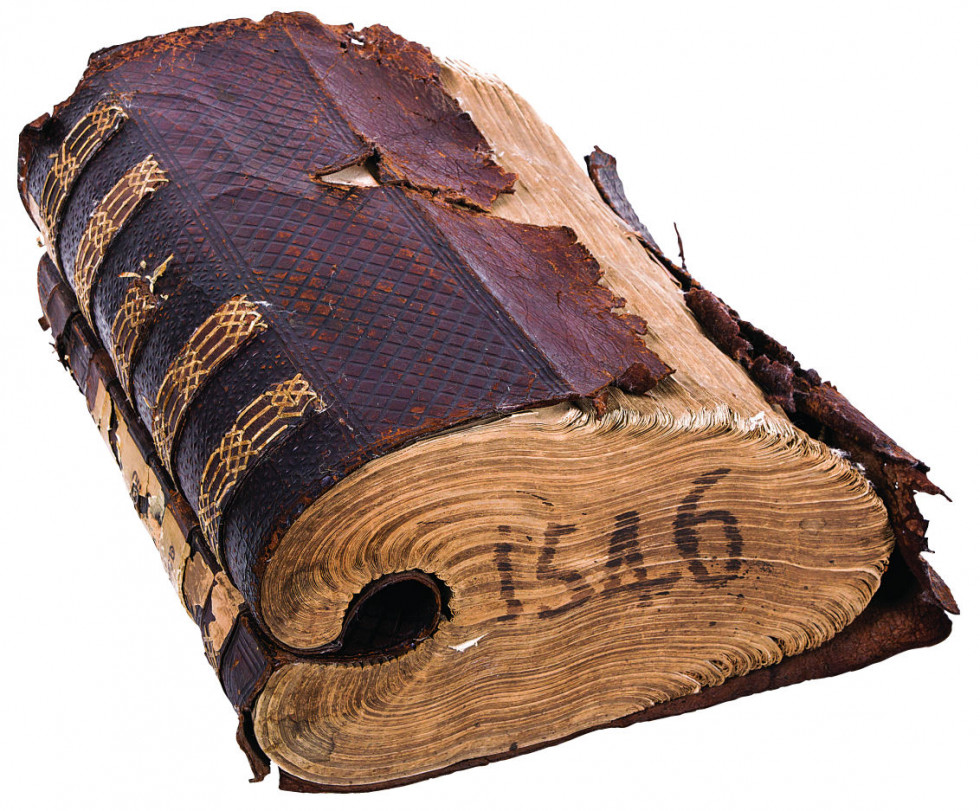Preservation of archival cultural heritage
Our care for archival records is divided into actions taken before the records are actually transferred into archival institution (so-called external service activities), and actions taken once the records are in our permanent custody. The more time we spend with records when they are still held by their creators, the easier it is for us once the records arrive to archival institution. Archival institutions supervise and appraise current records produced by the creators entered into our Register of Public Archival Records Creators, but we also cooperate closely with potential owners of private archival records. We issue written professional instructions based on which archival records are selected out of current records, and make sure that properly described and technically equipped records are then transferred into archives within the statutory time limit. We observe legal obligation to protect all types of secrecies and personal data, and in the case of private archival records we also protect sets of records, marked as inaccessible or party accessible by the owner upon transfer of his records.
To make sure archival records are transferred into our archival institution as safely as possible, archivist regularly organize training courses obligatory for those employed by records creators to manage their current records and digital records. At such courses we present our participants the latest developments in records management and criteria for appraisal of records and for determining retention periods. We show them how to describe and prepare their documents prior to them being transferred into archives. We speak about preservation of records in digital form, about ingest, conversion and legally valid long-term preservation of such records. Last but not least, since paper based documents are still prevalent, we draw attention to some of the typical damages we can expect to find in paper documents and give advice on how to prevent such damage or make it less harmful so as to avoid any unnecessary loss or destruction of records.
Once transferred into archival institution, archival records are processed in more detail, either due to their significance and the fact that they are old and rare, or because they are considered to be susceptible to damage. Records are then arranged and described according to international standards for archival description, and finding aids are prepared in the form of archival lists, guides and inventories. To carry out such tasks, archivists need to be well familiar with their records, especially with the context in which records were created. If preserved, the original arrangement of records first determined by their creator is retained, otherwise a new arrangement is made based on the functions and operations of records creator. When processing older documents, archivists need to be well versed in the fields of paleography, diplomatics and chronology; we also hold courses and workshops for the public interested in acquiring such professional skills and knowledge.
Our aim is to make archival records available to as many users as possible in the shortest time possible. For this purpose, two of our most frequent daily tasks are providing users in our reading room with their pre-ordered archival records and issuing of reproductions and certificates on the basis of documents kept in our archival holdings. We are also aware of the importance of fostering cultural values, either by presenting them to primary and secondary school pupils and other visiting groups or individuals, or by preparing and holding exhibitors, lectures and film projections.
Research and participation in research projects in the field of history and archival science is also one of the activities inextricably connected with professional tasks of the archivists here at the Archives. So far, the Archives has published over 200 publications dealing with every aspect of its work.
Another important area of our work is preservation of archival collection and restoration of damaged records. For this purpose, a restoration workshop was established at the Archives of the Republic of Slovenia in 1980, which has since developed and grew into present-day Book and Paper Conservation Centre.
By establishing the Slovenian Film Archives - a special organizational unit dedicated entirely to preserving Slovenian film heritage - the Archives of the Republic of Slovenia has since 1968 also systematically been taking care of film archival material produced by Slovenian filmmakers.
Special emphasis is placed on the preservation of digital records as well. Together with the Ministry of Public Administration and in cooperation with all Slovenian public archives within the public archival network, a complex environment for e-archiving is currently being prepared. It includes procedures for submitting digitized and born digital records into the public archives as well as procedures for processing, efficient management, use and long-term preservation of such records.
Tasks related to digital archiving are an important addition to all our work carried out by Slovenian archival public service to preserve Slovenia's archival cultural heritage. By engaging in such activities, we are entering the era of digital documents, which in many aspects alters our handling of written cultural heritage.
Apart from the said duties, the Archives also manages and coordinates methods and procedures involved in the preservation of Slovenian archival records and maintains a summary register of public archival records in the country, a register of archival records in neighbouring countries and abroad that relate to Slovenia and Slovenians, and a register of public symbols, coats-of-arms, flags, seals, and rubber and other stamps at the state level.


